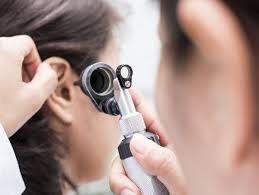Earwax, also known as cerumen, plays an essential role in protecting the ears by trapping dust, debris, and harmful microorganisms. While it’s a natural process for the body to produce and expel earwax, an excessive buildup can lead to discomfort, hearing difficulties, and even infections. Removing earwax safely is crucial to maintaining ear health, and understanding best practices can help you avoid common pitfalls.
This article will guide you through safe and effective Ear Wax Removal Dubai, highlight the benefits of proper care, and answer common questions to ensure your ears stay healthy and comfortable.
Why Is Safe Earwax Removal Important?
Removing earwax improperly can lead to a range of problems, including:
- Ear injuries: Inserting objects like cotton swabs or hairpins can damage the ear canal or eardrum.
- Impacted wax: Pushing wax further into the ear can cause blockages and pain.
- Infections: Abrasions or trapped moisture can lead to bacterial or fungal infections.
Following safe earwax removal practices minimizes these risks while maintaining the natural balance of your ear health.
Common Symptoms of Earwax Buildup
Recognizing the signs of earwax accumulation can help you address the issue early. Symptoms include:
- Feeling of fullness or blockage in the ear
- Muffled hearing or partial hearing loss
- Itching or irritation in the ear canal
- Pain or discomfort
- Ringing in the ears (tinnitus)
If you experience severe pain or persistent symptoms, it’s essential to consult a healthcare professional for evaluation and treatment.
Best Practices for Safe Earwax Removal
1. Leave It to the Professionals
The safest way to remove earwax is to consult an ENT specialist or audiologist. They use specialized tools and techniques to extract wax safely and efficiently without causing harm.
2. Try Earwax Softening Drops
Over-the-counter earwax softening drops can help loosen and dissolve earwax, making it easier to drain naturally. These drops typically contain ingredients like hydrogen peroxide or saline. Follow the instructions carefully to avoid overuse or irritation.
3. Use Warm Water for Irrigation
Ear irrigation involves gently flushing the ear canal with warm water to dislodge wax. This can be done at home using a bulb syringe, but it’s crucial to ensure the water is at a comfortable temperature and to avoid forceful streams that may damage the eardrum.
4. Avoid Cotton Swabs or Sharp Objects
Using cotton swabs, hairpins, or similar items to clean the ears often pushes wax deeper into the canal, increasing the risk of blockages and injuries. These objects should never be used to remove earwax.
5. Practice Preventative Care
- Clean the outer ear with a damp cloth to remove visible wax without inserting anything into the ear canal.
- Avoid exposure to dusty or dirty environments that may increase earwax production.
- Keep your ears dry after swimming or showering to reduce the risk of infection.
Benefits of Proper Earwax Removal
Safe earwax removal can improve your hearing, relieve discomfort, and reduce the risk of complications like infections or impacted wax. Regular maintenance also ensures the ear canal remains clear and healthy, preventing future buildup.
Post-Treatment Care
After safe earwax removal, follow these tips to maintain ear health:
- Avoid over-cleaning: The ears are self-cleaning and only require occasional external cleaning.
- Monitor your symptoms: If discomfort, itching, or hearing loss persists, seek medical advice.
- Protect your ears: Use earplugs when swimming or in noisy environments to prevent infections or damage.
When to Seek Professional Help
If Ear Wax Removal in Dubai, hearing loss, or recurring issues, it’s best to consult a professional. Symptoms like sharp pain, discharge, or dizziness may indicate a more serious condition that requires medical attention.
Conclusion
Maintaining proper ear hygiene is essential for overall ear health. By following these safe practices, you can avoid the risks associated with improper earwax removal and ensure your ears remain healthy and functional. When in doubt, seek professional help to address any concerns and keep your hearing at its best.





Comments